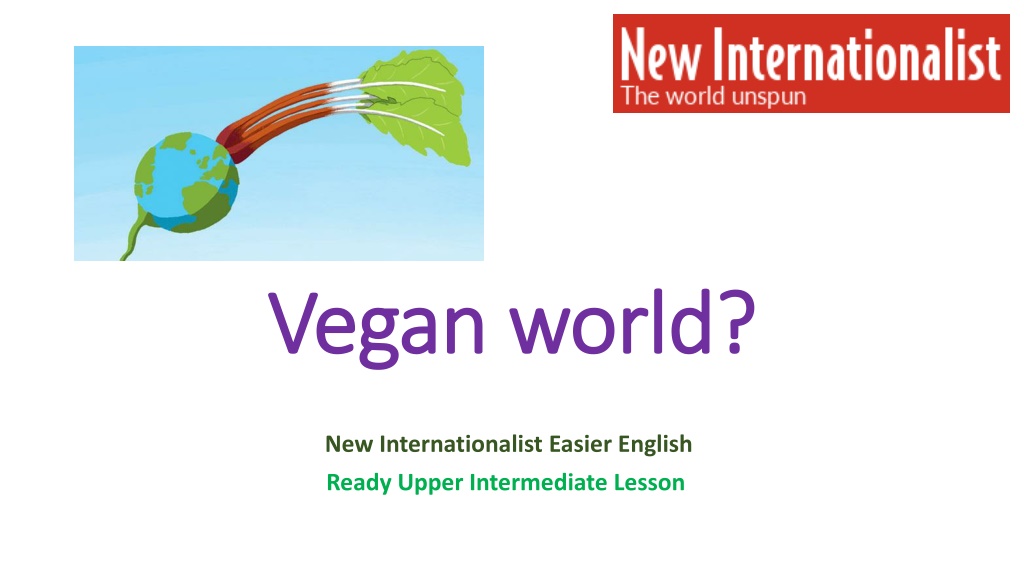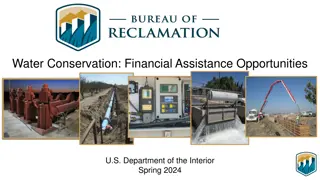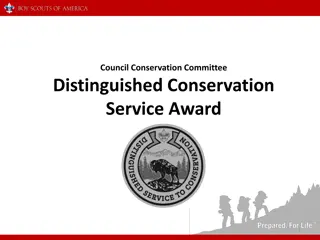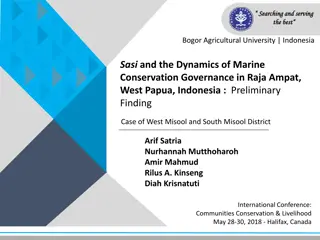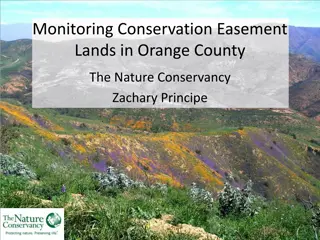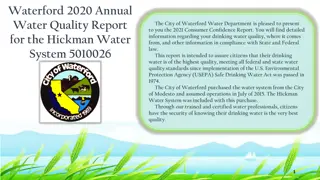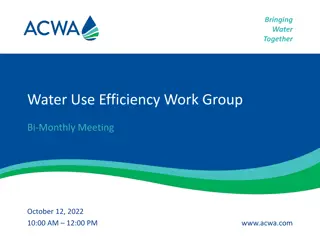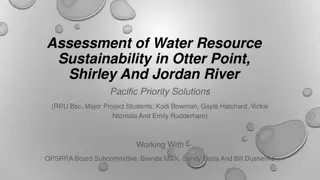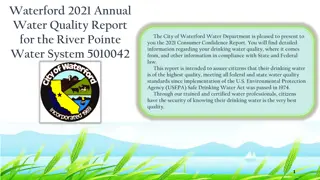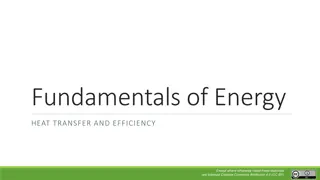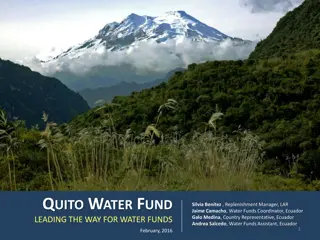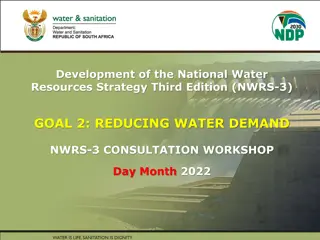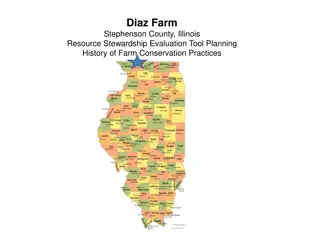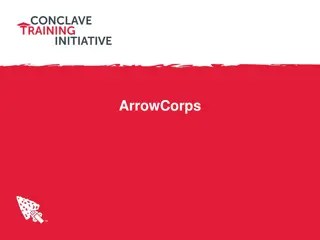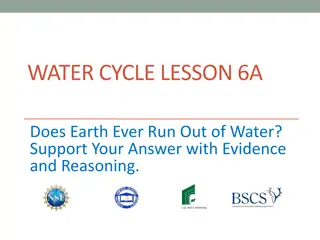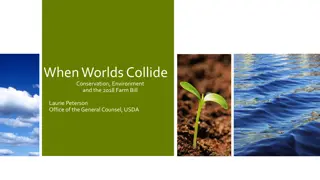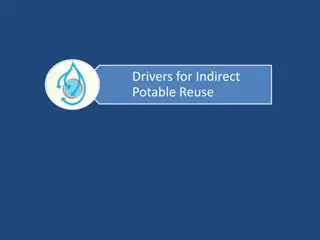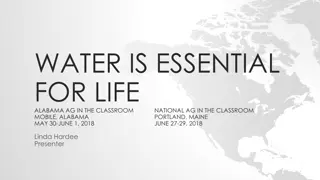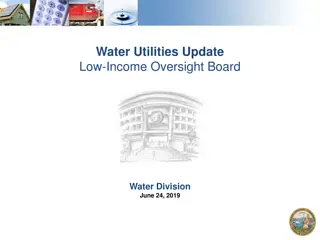Understanding the Impact of Veganism on Water Conservation and Sustainability
Explore the benefits of veganism in reducing water usage, carbon emissions, and promoting sustainability. Learn how simple dietary choices can have a significant positive impact on the environment and global resources.
Download Presentation

Please find below an Image/Link to download the presentation.
The content on the website is provided AS IS for your information and personal use only. It may not be sold, licensed, or shared on other websites without obtaining consent from the author. Download presentation by click this link. If you encounter any issues during the download, it is possible that the publisher has removed the file from their server.
E N D
Presentation Transcript
Vegan world? Vegan world? New Internationalist Easier English Ready Upper Intermediate Lesson
What can you see? What do you think it is about? What can you see? What do you think it is about?
Match: Match: 1) vegan 2) drought 3) flush 4) campaign 5) benefit 6) chronic 7) agricultural 8) obesity 9) diabetes 10) consumption a) when there is no rain and it is a problem b) when being overweight is an illness c) used for farming d) someone who eats no meat, no fish, no dairy food (eggs, milk, yoghurt) e) use water to clean the toilet f) a good effect g) illness lasting a long time h) illness when the body can t control the sugar in the body i) planned action by a group to make a change j) this is how much we use or eat
What do you think? What do you think? 1)There are droughts in California. True or false? 2)A pound (440 grams) of beef in a burger uses more water than a pound of potatoes. True or false? 3)Not flushing the toilet for six months saves more water than not having a shower for thee months. True or false? 4)Meat and dairy use a lot of water. True or false? Now read and check: Now read and check:
A billboard campaign by Californian artist Karen Firito, offered passers-by some interesting choices. They could help to save 1,300 gallons (4,921 litres) of water in California with all of its droughts by: not flushing the toilet for six months; or not showering for three months; or not eating just one burger today. Yes, that s it. One beef burger! The online campaign shows a pound (450 grams) of potatoes uses about 24 gallons (90 litres) of water to produce, bread 193 gallons (730 litres) and beef a big 5,214 (19,737 litres). All animal products rank high cheese is 896 (3,391 litres) But suppose we all, the whole world, changed to a vegan diet? What would happen?
What do you think the answers are? What do you think the answers are? 1) If we all became vegan, it would cut carbon emissions by at least two thirds True/false? 2) Healthy diets might save lives. True/false? 3) A vegetarian diet could save more lives than a vegan diet. True/false? 4) A vegan diet needs less water. True/false? 5) A meat diet and a vegan diet use the same amount of energy. True/false? 6) Most farm land is used to feed animals. True/false? 7) It is possible that we could stop hunger in the world with less food than we give to animals today. True/false Now read and check: Now read and check:
In 2016 Marco Springmann looked at the figures at the Oxford Martin Programme on the Future of Food. He found that if the world suddenly changed to a vegan diet in the year 2050, in that single year we could reduce greenhouse gas emissions by two- thirds. But a 2019 correction to research published in Science by Joseph Poore and T Temecek has a lower figure. It shows that not using animal products gives a 28-per- cent reduction in global greenhouse gas emissions in all parts of the economy (compared to 2010 emissions). Still good, but not nearly as good. Researchers have looked at other global benefits of veganism. A generally healthier diet could save five million lives a year, a vegetarian diet seven million. But a vegan diet would save eight million deaths from chronic diseases, says Springmann. A vegan future would also give space and resources for growing food. Research in The American Journal of Clinical Nutrition says that a meat-eater s diet needs 17 times more land, 14 times more water, and 10 times more energy than a vegetarian s. This is mainly because we use 68 per cent of the world s agricultural land for growing food for animals. Harvard Professor of Medicine Walt Willett says we could stop most world hunger today with about 40 million tonnes of food. But we feed 760 million tonnes to farm animals every year.
But suppose we all, the whole world, changed to a vegan diet? What would happen? What do you think would happen? List four ideas.
What do you think the answers are? What do you think the answers are? 1) By 20150 the number of people on the planet will be (a) 7.5 billion (b) 8.5 billion or (c) 10.5 billion? 2) We already have enough food for everyone in the world. True/false? 3) Sheep, pigs, and chickens would all be ok if we set them free. True/false? 4) China has plans to get its people to eat less meat. True/false? Now read and check: Now read and check:
World population is rising from 7.5 billion to 10.5 billion by 2050, we need more resources. But writer and environmentalist Paul Allen says, there is another, more political problem. He writes in BBC Good Food. Right now, we already produce more than 1.5 times the food we need for everyone on the planet. It doesn t get to everyone in need. Having enough to eat is as much about politics and big business as dietary choices, And the global meat and dairy industries give work to millions of people, often in poor communities. And what would happen to all the animals we have for humans to eat? Would cows take over the world? Would we kill them? Or take them to safe places? Would they return to the wild? Some farm animals like broiler chickens, would not survive in the wild. Others, like sheep or pigs, would do better. There has been a big increase in veganism or at least consumption of vegan products. But the change to vegan food won t be quick and so farmers can breed fewer animals as the demand falls. What happens in Asia with its big populations is important. Because we need to take action on climate change, obesity, and diabetes, in 2016 the Chinese government gave new guidelines to get the nation s 1.3 billion people to reduce their meat consumption by 50 per cent by 2030. So maybe a vegan world by 2050 is possible
Grammar Grammar If we all became vegan, it would cut carbon emissions. 1) Is the grammar: If + past simple, + subject + would + base form ? 2) Is this first, second, or, third conditional? 3) Are we thinking about the past, the present or the future?
Grammar Grammar If we all became vegan, Finish this sentence in 5 different ways.
Vegan or not vegan? Ask your partner. Vegan or not vegan? Ask your partner. 1) Are you vegan? 2) Do you know any vegans? In your class? Family? 3) Do you think you could follow a vegan diet? What would be difficult? What problems would there be? 4) What would be the best way to become vegan?
Homework Homework Write an email to a friend explaining why you do or why you don t think you could become vegan. Use at least one second conditional sentence.
